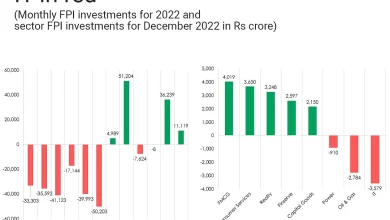‘Money is running out,’ retirees say, prompting some to return to work
Gregory Boulware returned to work in 2020 after more than a decade of retirement

For over 30 years, Boulware, 69, worked as a truck driver, spending long hours away from his Pennsylvania home and his wife and children in order to make a living and save money. Years on the road had taken their toll on his health, and he was concerned that the constant back discomfort and aches might worsen. In 2007, he returned to school and earned an associate’s degree in management and information technology, but he was only able to find part-time work. He left the company in 2008.
He began writing novels in retirement, “which make no money,” he joked, but he had retirement savings, had begun collecting Social Security at the age of 59, and had a plan. However, he and his wife later purchased a home.
“When we lived in an apartment, we were OK because we could easily afford it,” Boulware explained, “but every year the rent would go up.” “I woke up one day and thought to myself, ‘You know, these folks can tell us to leave, and we’ll have nowhere to go in an hour.'”
The house they bought with their life savings put them in danger of losing it, making every mortgage payment a strain, and forcing them to cut back on other expenses like food and petrol to make ends meet. Boulware made the decision to return to work. He enrolled in a low-income adult job training programme under the Senior Community Service Employment Program (SCSEP), a community service and work-based training programme for older people approved by the Older Americans Act, and was hired into a clerical position last month.
Bob Krasner left his job as a Bay Area Rapid Transit station agent in March. But, less than a year after retiring, he returned to work as a driver for Independent Transportation Network, a senior transportation service, to protect his future savings in case his health deteriorated.
Krasner, 67, is a meal-delivery service for persons who have difficulty getting around. While being “bored to tears” and missing daily interaction with others were important factors in his choice to return to work, he also stated that earning the extra “grocery money” would help him retain his savings.
“We can make ends meet on my pension and Social Security, as well as my wife’s Social Security and wages,” he added, “but going back to work provides us the flexibility to not have to look at the price tag on everything we buy.” “We can go to the store and purchase what we need.”
According to Susan Weinstock, vice president of AARP’s financial resiliency programming, “unretiring to bridge the gaps left by retirement income and savings is not unusual.



